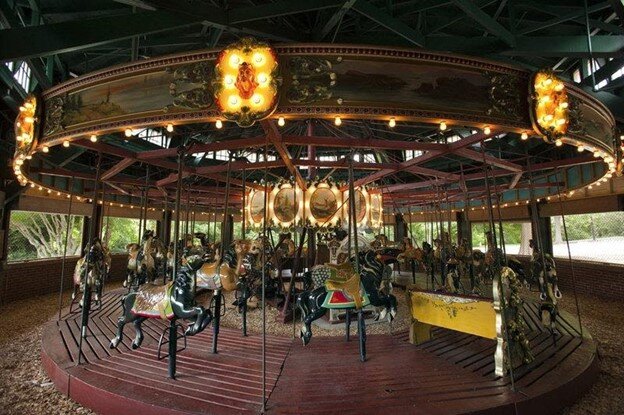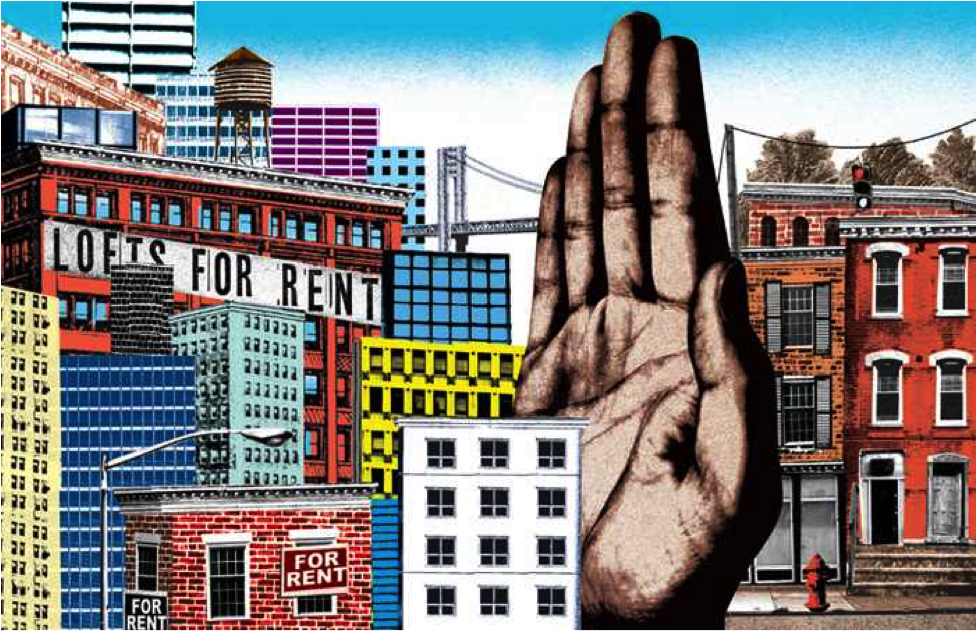The Chavis Carousel is the centerpiece of the 37-acre park in the Raleigh, North Carolina neighborhood, Chavis. When the park opened in 1938, it was the only African American park in the Southeast United States. Because of this, it was visited by many African Americans throughout North Carolina as well as other states. Following the end of segregation the park and surrounding neighborhoods began to decline under various influences. The City pledged re-investment in the park ten years ago and is just now beginning to fulfill that promise.
Read MoreDear Green Place: Gentrification and Displacement in Glasgow’s West End
3,636 miles. That’s how far Glasgow, Scotland and Durham, North Carolina are apart from each other. Current OHMA student Rebecca McGilveray reflects on Nishani Frazier’s recent workshop and one of the things that unites these two places – the issues surrounding displacement.
Read MoreTelling Histories: Aurality in the Classroom and in the Streets
Nishani Frazier, educator, black freedom scholar, and someone unafraid to turn oral history practices on their head, recently returned to Columbia (where she earned her PhD) to discuss "The Sounds of Blackness: Space and Sound Preservation as Oral History Advocacy."
Read MoreOral History as Excavation: Exploring ‘Voices of Crown Heights’ (Part I)
Source: 6sqft.com
This article is the first in a three-part series examining the Brooklyn Historical Society’s ongoing oral history project “Voices of Crown Heights.” In this post, current OHMA student Dina Asfaha (2016) writes that Zaheer Ali's project is a prime example of the need for oral history in understanding society. She proposes that Ali does an exemplary job of situating people's narratives in their respective historical contexts and putting those narratives in conversation with one another in order to deduce conclusions about how gentrification in Crown Heights can be understood today.
Read MoreField Notes: The Narrative Outside of Oral History
Image by Emma Courtland
Earlier this fall, DW Gibson, author of Not Working and The Edge Becomes the Center: An Oral History of Gentrification in the Twenty-First Century, gave an OHMA Workshop Series lecture in on how he used oral history to reflect the changes in peoples’ lives through gentrification. This article—written by current OHMA student Liu Ting (2016)—focuses on how Gibson presents oral histories in his book and how his own narrative interplays with the interviews.
Read MoreWhat is Oral History Anyway? Field Notes from a Workshop with DW Gibson
Not my actual train. But it could be.
In this post, Robin Weinberg (2016) shares her thoughts about oral history after a presentation by DW Gibson, author of The Edge Becomes the Center: An Oral History of Gentrification in the Twenty-First Century, in OHMA’s 2016-2017 Oral History Workshop Series.
Read MoreField Notes: How Much Can We Trust The Dialogic Exchange Between Historian and Narrator?
Recently, author DW Gibson stopped by OHMA to discuss his book, The Edge Becomes The Center: An Oral History of Gentrification in the Twenty-First Century, in which he documents the lives and stories of Brooklynites and others who have an opinion on the increased development in Brooklyn, New York. In this post, Fanny Garcia (2016) reflects on his presentation.
Read More






